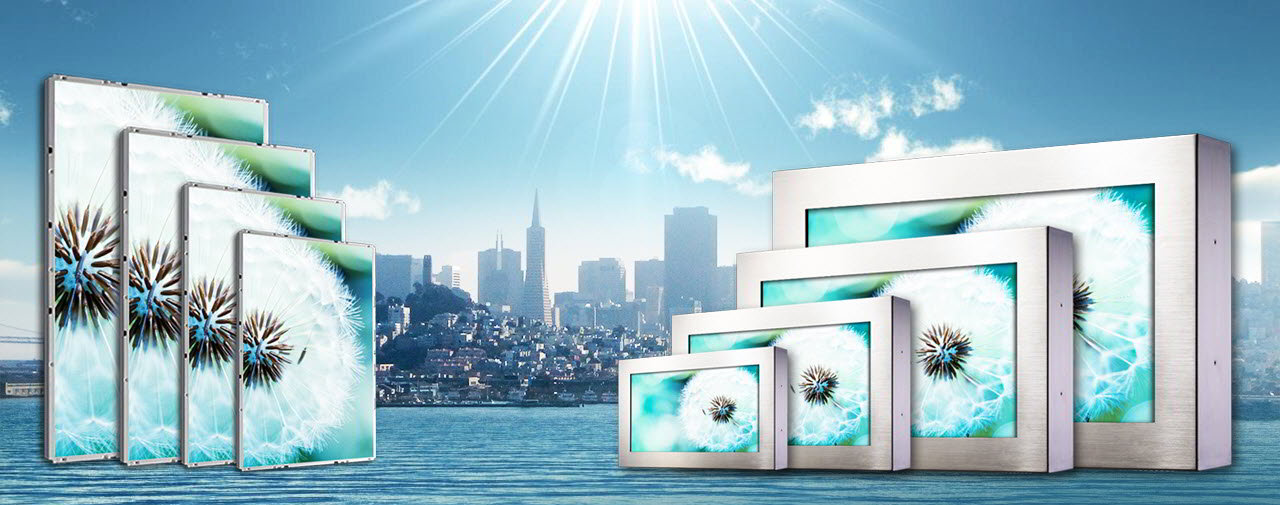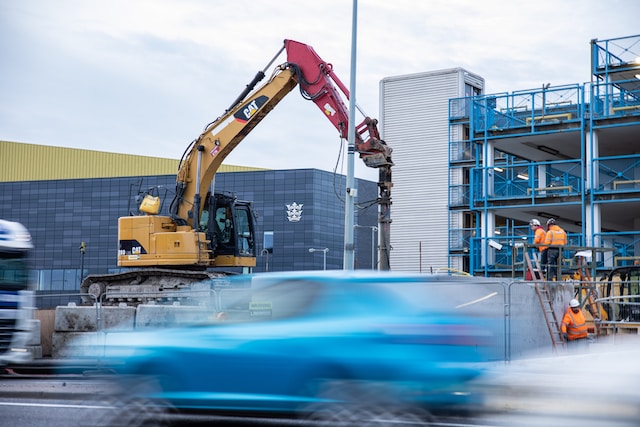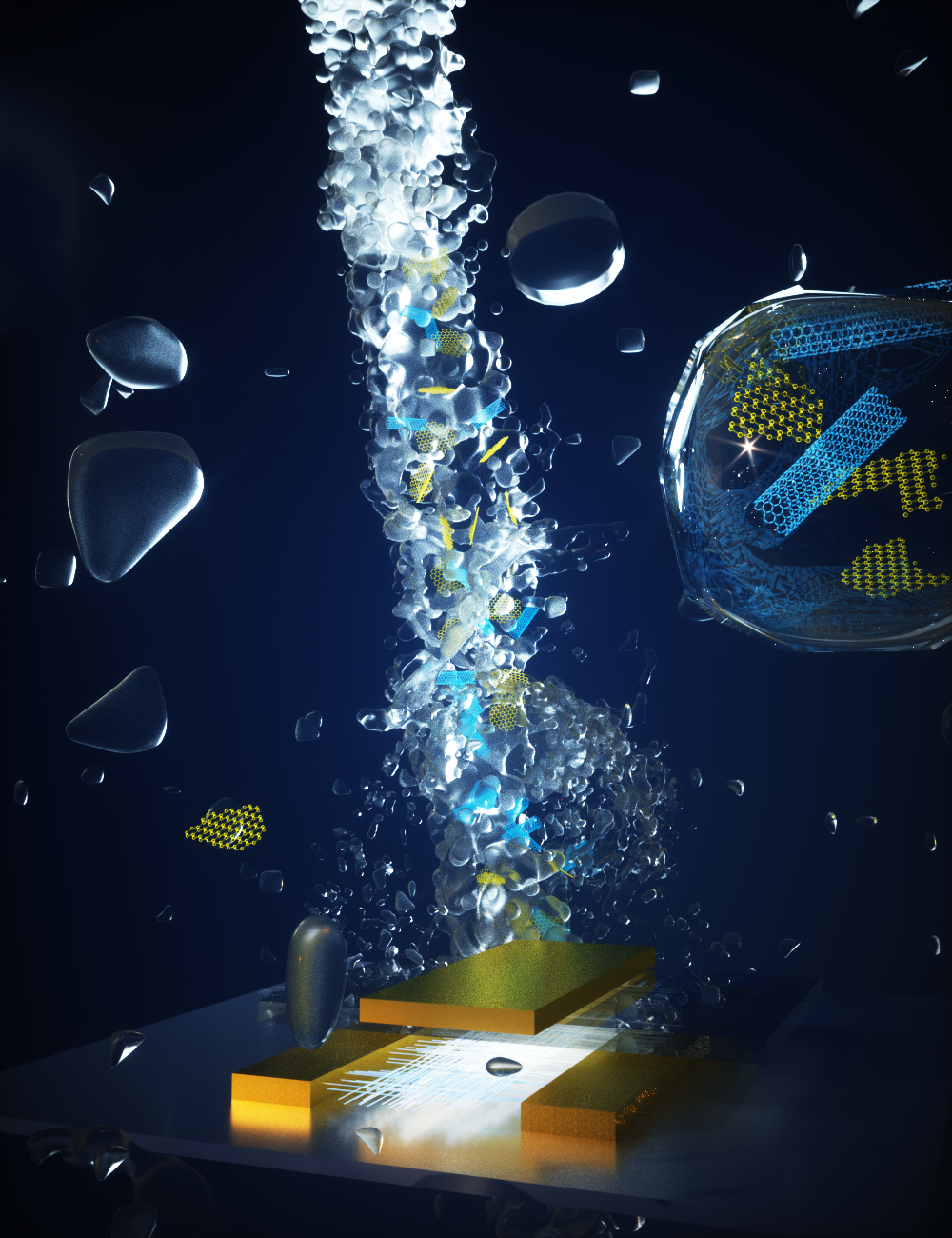With more and more outdoor LCD Display applications in the marketplace, the readability & sustainability of the LCD panel under direct sunlight is becoming more vital. But there are several obstacles to overcome in order to provide a good LCD display solution under direct sunlight, such as the overheat issue, water-proof issue, readability issue, and the sustainability issue.
Winsonic has continually been developing a sunlight readable LCD Display solution. The company offers a full range of high brightness / sunlight readable LCD display solutions to meet consumer demand.
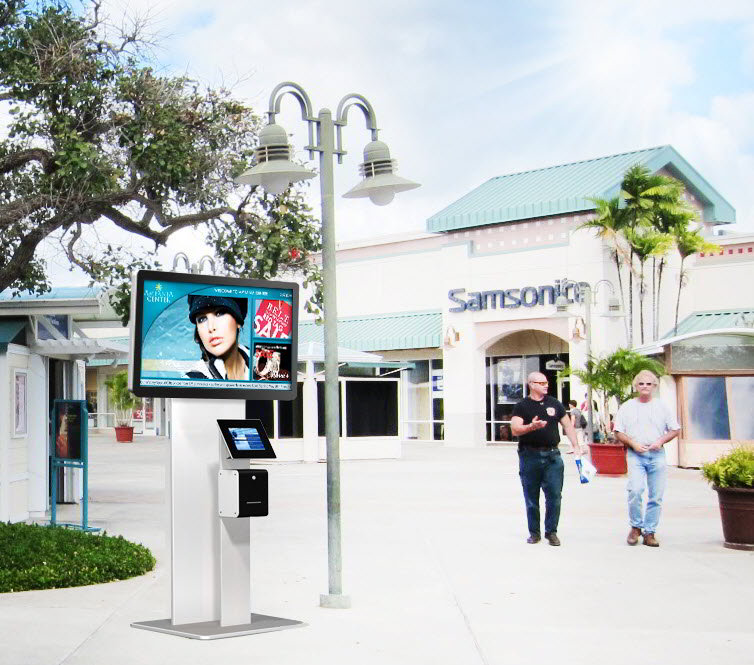
The factors that affect sunlight readability
Sunlight visibility of a display depends on the differences between the lumination (brightness) and the illumination (ambient light shining on the display).
Because the TFT LCD display does not emit light, it needs an external light source ( backlight ) . The brightness of an LCD display is much less than the sun, which causes the LCD displays to barely be viewable in a bright environment, especially under direct sunlight.
The best solution to direct sunlight readability is said to be transflective LCD that reflects ambient light to increase its light level. Yet, the transflective LCD display compromises the transmission rate and the contrast because it needs an additional reflective layer, not to mention the high cost problem. Right now, the transflective LCD panel is not a popular or practical solution because of these issues.
The other option to enhance visibility is to increase brightness. However, there are still several factors that affect the visibility under direct sunlight that correlate with each other. Winsonic has developed technologies that solve the problems at an affordable cost.
These technologies are :
- High Brightness LCD panel
- Optical Bonding
- Anti-reflection surface treatment
- UV protective film & IR heat rejected
- Ventilation Structure Design
All of the above issues are related to each other, making the sunlight readable requirement complicated. Winsonic has found the right balance between these issues and the price tag to offer a cost-efficient solution that conquers the sunlight readable problem.
1. High Brightness LCD Panel
There are 2 solutions for the high brightness requirement:
1.1. High Efficient LED Light Bar Replacement
Replace the original CCFL or LED light bar with a high-efficient LED light bar to increase brightness, also eliminating the inverter thereby improving EMI emissions.
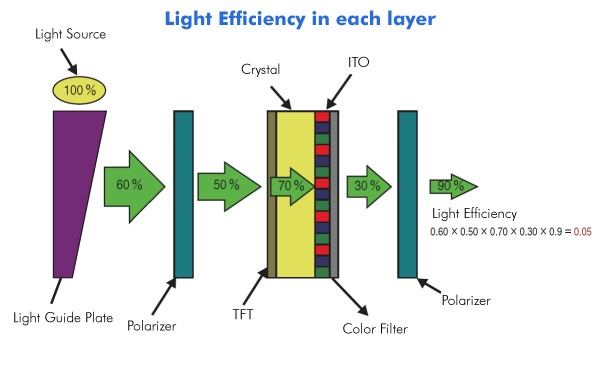
1.2. Brightness Enhancement Film Replacement
Increases panel brightness by 60% with a single sheet and up to 120% with two crossed sheets.
2. Optical Bonding
Optical bonding is the joining of two rigid optical elements using transparent adhesive to reduce reflectance and provide vandal resistance.
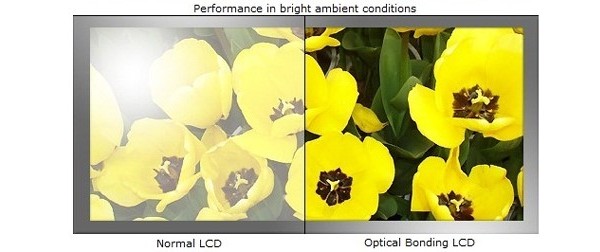
Optical Bonding Benefits:
- Increased sunlight readability up to 400%
- Increased impact resistance up to 300%
- Enables resistance to extreme temperatures
- Enable thinner and lighter display designs
- Prevents condensation and fogging
Click Here For More Information on Sunlight Readable Displays.
3. Anti-reflection surface treatment
The readability of an LCD display under direct sunlight is strongly correlated with the reflection of LCD surface. A reflective surface of the display will make the readability worse even with high brightness. A proper anti-reflection surface treatment is important to improve the readability.
4. UV protective film & IR heat rejected-
Ultraviolet (UV) rays are invisible rays that are part of the energy that comes from the sun. An LCD panel can be damaged by UV rays if it is exposed too much to the sun.
A proper UV protective film is crucial for the sustainability of an LCD display under direct sunlight.
The Infrared light contribute heat to cause the overheat problem. A proper Anti-IR solution is also crucial for the sunlight readable issue.
5. Ventilation Structure Design
Another issue for outdoor direct sunlight applications is the overheat issue. Overheating causes the crystal to liquidize, which results in the black image. In a direct sunlight application, the ventilation structure design is more crucial because infrared light and visible light contribute heat on the LCD panel. Without the appropriated ventilation design, a LCD display won’t survive the overheat problem.

